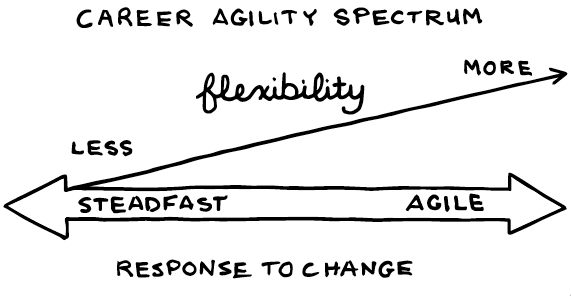In today’s rapidly changing job market, adaptability has become a prized asset. Career agility, the ability to pivot, learn, and thrive in various roles and industries, is now more critical than ever. In this blog, we’ll delve into the concept of career agility, its significance in the modern workplace, and strategies to harness its potential for personal and professional growth.
The Evolution of Career Agility
The traditional career model of climbing the corporate ladder within a single company or industry has evolved into a more fluid and dynamic concept. Factors such as technological advancements, economic shifts, and the gig economy have reshaped how we approach careers:
- Job Security: Long-term job security within a single company or industry is increasingly rare. Automation and globalization have disrupted many traditional roles.
- Lifelong Learning: The pace of change demands continuous learning and upskilling. Individuals who embrace lifelong learning remain adaptable and competitive.
- Diverse Career Paths: People are now pursuing diverse career paths, often shifting between industries and even starting their own businesses.
The Significance of Career Agility
- Resilience: Career agility is synonymous with resilience. It enables individuals to bounce back from setbacks, whether due to job loss or changing industry landscapes.
- Continuous Growth: By being adaptable, you can continuously grow and learn. You’ll acquire a broader skill set and knowledge base, making you more valuable in the job market.
- Professional Fulfillment: Career agility allows you to explore different roles and industries, increasing the likelihood of finding work that aligns with your passion and values.
- Economic Stability: The ability to pivot and explore new opportunities enhances financial stability, reducing the risk associated with job market fluctuations.
Strategies to Cultivate Career Agility
- Embrace Lifelong Learning: Invest in your education and professional development. Stay current with industry trends and seek opportunities for upskilling and reskilling.
- Networking: Build a diverse professional network. Networking can open doors to new opportunities and provide valuable insights into different industries.

